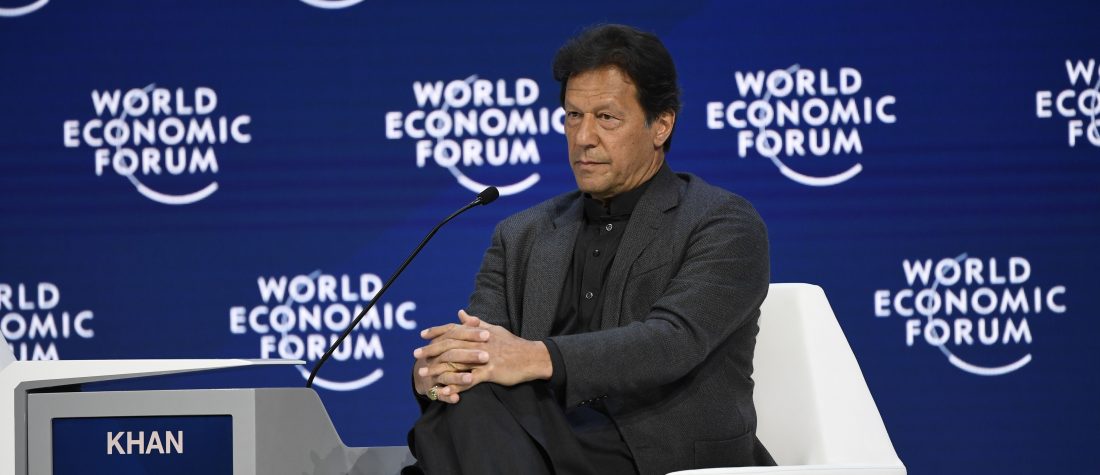Rumour swirls in Pakistan and among the Pakistani diaspora. The rumour concerns the de facto leader of the opposition, Imran Khan. Khan was prime minister of Pakistan before his removal from office in 2022. The rumours concern the possibility of Khan’s coming assassination.
This may seem strange: Khan is a heroic sportsman, a national figure. Why would he be killed? The possible reason lies in Pakistan’s politics, and the hold the army still has over the government of the country.
Ever since his ouster, Khan has been on a roll. He has denounced the country’s politicians as corrupt and the military as a malign force. He has called for fresh elections. And he has toured the country, giving barn-burning speeches in a populist manner unknown to the rest of Pakistan’s political class, calling for major reform.
And he has been met with violence, bans, and censorship wherever he has gone.
Khan’s supporters charge that the army is behind all this: the torture and arrest of Khan’s people, an attack on Khan’s person with a gun which left the politician unable to walk, and repeated attempts to jail Khan for alleged corruption (corruption his supporters say is fabricated).
Faced with the prospect of a major shake-up in Pakistan’s elected politics, therefore, they argue that army has decided to do everything it can to remove Khan from the stage. Now that these gambits have failed, and elections loom later this year, only the worst option remains: murder.
This is heated talk but it must be understood. Not only has Khan been shot; he is repeatedly threatened by the state.
America’s leaders must understand that these events affect them and their regional policy. Pakistani democracy hangs in the balance. If Khan is assassinated, a military takeover will assuredly follow.
The army failed to hold the ring with an alliance of status-quo politicians. If it resorts to murdering an opposition leader – and currently electoral front-runner — a Rubicon will have been crossed. Pakistan suffered four coups in its first fifty years of independence. It would hardly be impossible for another to come, only seventy-five years since partition.
If this happens – the killing and the coup – our response will be vital. What we do next, across the wider West, will determine our stance against the rise of the authoritarian tendency across the world: a phenomenon I study in depth in my recent book, Authoritarian Century.
The State Department and the president must do the following things in that unhappy event. The first is that the relevant parties must make a formal declaration that an army take over really is a military coup.
On the heels of this declaration, travel bans on military personnel and their families must quickly follow. As similar measures proved when deployed against Russians following the invasion of Ukraine, this must be done quickly and without hesitation for maximum effect and morale.
This must be followed by asset seizures of all those involved and their families. Pakistan’s military is best understood as an engine, an apparatus, of kleptocracy and corruption. This money has been stashed all over the world, but particularly in the United States. To allow the putschists to keep their looted wealth would be wholly wrong.
And for Pakistan itself, the costs must be significant. Its government must be persona non-grata. That must mean no more financial support from the International Monetary Fund (IMF), the World Bank and more. Pakistan faces financial troubles: but an illegitimate criminal regime of coup-ists cannot be allowed to draw upon legitimate institutions to ameliorate them.
More broadly, beyond the United States, Pakistan must be isolated like previous pariah states were isolated: this must include suspension from the Commonwealth; and the removal of Pakistan’s Generalised Scheme of Preferences Plus (GSP+) trade preferences with Europe and the United Kingdom. It is on America to make its allies play their important parts.
Washington and London are looking at how to respond to growing authoritarianism, and an assertive China. They are talking about sanctions, travel bans, and suspension from international organisations. Pakistan provides a potential first case to demonstrate how the West will respond.
All of these are already being discussed in response to other military takeovers, and therefore it must happen in Pakistan first in demonstration.
In a battle for the future of the world, the West needs to demonstrate that there are consequences to political violence and military excesses – especially among our nominal allies. Otherwise, other democracies will rapidly fall in succession.
And the United States must say in advance, in concert with allies, that this will be the response. We have failed to deter numerous things which we subsequently punished harshly, Russia’s invasion of Ukraine in 2022 being the best example.
Let us not squander the deterrence effect of stating these things clearly now, in advance.
If Imran Khan is assassinated, Pakistan will already be upon the crucible, the army will happily plunge its own country into internal strife, a possible civil war, and the prospect of millions fleeing the country. The must know also that they will court personal ruin and diplomatic isolation if they make so barbaric a step


